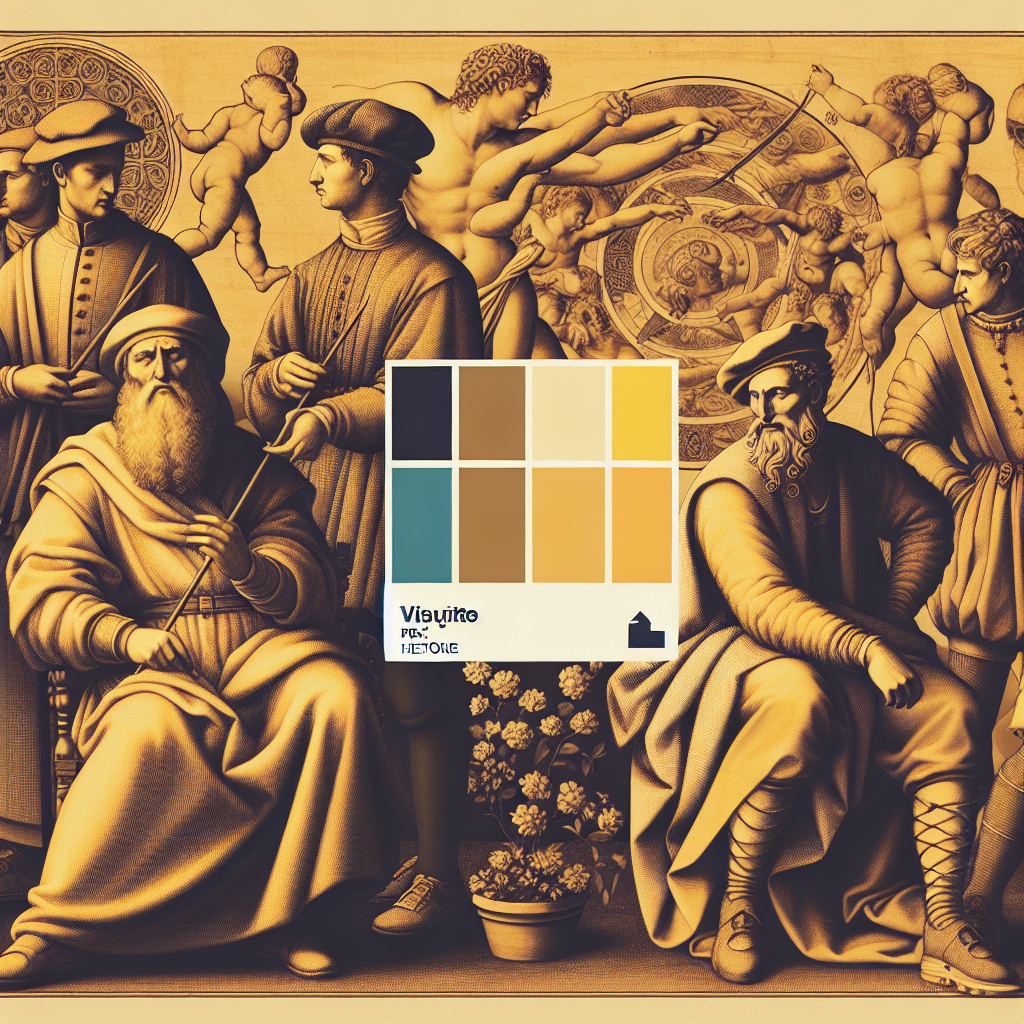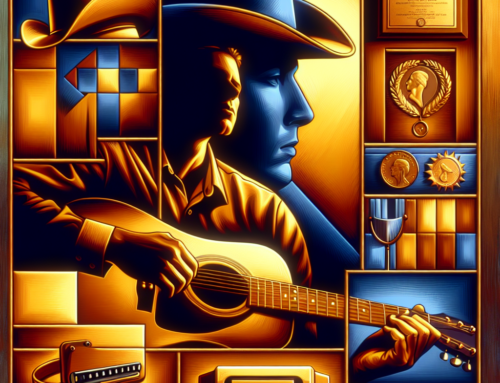-
Table of Contents
- Introduction
- Origins Of Folk Punk: Tracing The Roots Of A Unique Genre
- Influential Folk Punk Bands: Icons That Shaped The Scene
- The DIY Ethos: How Folk Punk Embraces Independent Spirit
- Lyrical Themes In Folk Punk: Stories Of Rebellion And Resilience
- The Evolution Of Folk Punk: From Underground To Mainstream Recognition
- Q&A
- Conclusion
“Folk Punk: Where Acoustic Roots Ignite the Spirit of Rebellion.”
Introduction
Folk punk is a dynamic and eclectic genre that fuses the raw, rebellious spirit of punk rock with the traditional, storytelling elements of folk music. Emerging in the late 20th century, this genre is characterized by its acoustic instrumentation, often featuring guitars, banjos, and accordions, combined with the energetic and anti-establishment ethos of punk. Folk punk artists typically address social and political issues through their lyrics, channeling the DIY ethic and grassroots activism of punk while drawing on the rich narrative traditions of folk. This unique blend creates a sound that is both nostalgic and revolutionary, resonating with audiences who appreciate authenticity and a message of defiance.
Origins Of Folk Punk: Tracing The Roots Of A Unique Genre
Folk punk, a genre that marries the raw, unfiltered energy of punk rock with the storytelling and acoustic elements of folk music, has carved out a unique niche in the musical landscape. To understand the origins of folk punk, it is essential to trace the roots of both parent genres and explore how their fusion gave rise to a distinctive sound that resonates with a diverse audience.
The origins of folk music can be traced back centuries, characterized by its acoustic instrumentation and narrative-driven lyrics that often reflect the social and political climates of their times. Folk music has long served as a vehicle for storytelling, with artists using their songs to comment on societal issues, personal experiences, and cultural traditions. This genre’s emphasis on authenticity and relatability laid the groundwork for its eventual intersection with punk rock.
Punk rock, emerging in the mid-1970s, was a reaction against the perceived excesses of mainstream music. It was defined by its fast-paced rhythms, simple chord progressions, and a do-it-yourself ethos that encouraged musicians to create music that was raw and unpolished. Punk’s rebellious spirit and its focus on anti-establishment themes resonated with a generation disillusioned by societal norms and eager for change. This genre’s emphasis on individuality and resistance to conformity provided fertile ground for the development of folk punk.
The convergence of these two genres began to take shape in the late 1970s and early 1980s, as musicians sought to blend the storytelling prowess of folk with the rebellious energy of punk. This fusion was not merely a musical experiment but a cultural statement, as artists used their music to address issues such as social justice, environmental concerns, and personal freedom. The result was a genre that retained the acoustic elements and lyrical depth of folk while incorporating the raw intensity and urgency of punk.
One of the earliest and most influential bands in the folk punk scene was The Pogues, who emerged in the early 1980s. Their music combined traditional Irish folk with punk rock’s frenetic energy, creating a sound that was both familiar and revolutionary. The Pogues’ success paved the way for other artists to explore this hybrid genre, leading to the emergence of bands like Violent Femmes and Billy Bragg, who further defined the folk punk sound.
As the genre evolved, it continued to attract a diverse array of artists, each bringing their unique influences and perspectives. The 1990s and 2000s saw the rise of bands like Against Me! and The Mountain Goats, who infused their music with personal narratives and political commentary, further expanding the boundaries of folk punk. This period also witnessed the genre’s increasing popularity, as its themes of authenticity and resistance resonated with audiences seeking music that spoke to their experiences and aspirations.
In conclusion, the origins of folk punk can be traced to the intersection of two seemingly disparate genres, each with its rich history and cultural significance. By blending the storytelling and acoustic elements of folk with the rebellious energy of punk, artists have created a genre that is both innovative and deeply rooted in tradition. As folk punk continues to evolve, it remains a testament to the power of music as a tool for expression, connection, and change.
Influential Folk Punk Bands: Icons That Shaped The Scene
Folk punk, a genre that seamlessly blends the raw, rebellious energy of punk rock with the traditional, storytelling elements of folk music, has carved out a unique niche in the music world. This hybrid genre emerged in the late 20th century, capturing the imaginations of listeners who were drawn to its authenticity and its ability to convey powerful messages through both sound and lyrics. As with any musical movement, certain bands have played pivotal roles in shaping and defining the folk punk scene, leaving an indelible mark on its evolution.
One of the most influential bands in the folk punk genre is The Pogues. Formed in London in 1982, The Pogues combined traditional Irish folk music with the raw energy of punk, creating a sound that was both innovative and deeply rooted in cultural heritage. Their music, characterized by the use of traditional instruments such as the tin whistle and accordion, alongside electric guitars and drums, resonated with audiences worldwide. The Pogues’ ability to tell compelling stories through their lyrics, often touching on themes of love, loss, and political strife, set a precedent for future folk punk bands.
Transitioning from the UK to the United States, Violent Femmes emerged as another cornerstone of the folk punk movement. Formed in Milwaukee in 1980, the band brought a distinct American flavor to the genre. Their self-titled debut album, released in 1983, featured a stripped-down acoustic sound that was both raw and melodic. Songs like “Blister in the Sun” and “Add It Up” showcased their ability to blend punk’s rebellious spirit with folk’s introspective storytelling. The Violent Femmes’ influence can be seen in the way they inspired a generation of musicians to explore the intersection of acoustic and punk music.
As the genre continued to evolve, Against Me! became a defining force in the early 2000s. Originating from Gainesville, Florida, Against Me! infused their music with a sense of urgency and political activism. Their early work, characterized by gritty acoustic performances, captured the essence of folk punk’s DIY ethos. Albums like “Reinventing Axl Rose” and “As the Eternal Cowboy” highlighted their ability to address social and political issues through powerful lyrics and energetic performances. Against Me!’s evolution from an acoustic act to a full-fledged punk band demonstrated the genre’s versatility and its capacity for growth.
In addition to these bands, Mischief Brew, led by the late Erik Petersen, played a significant role in shaping the folk punk landscape. Based in Philadelphia, Mischief Brew drew inspiration from a wide range of influences, including anarcho-punk and traditional folk. Their music often featured themes of resistance and rebellion, resonating with listeners who were drawn to their anti-establishment message. Mischief Brew’s ability to blend diverse musical styles into a cohesive sound exemplified the genre’s eclectic nature.
In conclusion, the folk punk genre has been shaped by a variety of influential bands, each contributing their unique sound and perspective. From The Pogues’ fusion of Irish folk and punk to Against Me!’s politically charged anthems, these bands have left a lasting impact on the music world. As folk punk continues to evolve, it remains a testament to the power of music to transcend boundaries and bring together diverse influences in a harmonious yet rebellious blend.
The DIY Ethos: How Folk Punk Embraces Independent Spirit

Folk punk, a genre that marries the acoustic melodies of folk music with the raw energy and rebellious spirit of punk rock, has carved out a unique niche in the music world. Central to this genre is the DIY ethos, a principle that champions independence, self-reliance, and authenticity. This ethos is not merely an aesthetic choice but a fundamental aspect of folk punk’s identity, influencing everything from the way music is produced and distributed to how artists engage with their audiences.
At the heart of the DIY ethos is a rejection of mainstream music industry norms. Folk punk artists often choose to bypass traditional record labels, opting instead to self-produce and self-distribute their music. This approach allows them to maintain creative control and stay true to their artistic vision. By recording in home studios or makeshift spaces, these musicians can experiment freely without the constraints imposed by commercial interests. This independence fosters a sense of authenticity that resonates deeply with audiences who value genuine expression over polished production.
Moreover, the DIY ethos extends beyond music production to encompass the entire creative process. Folk punk artists frequently design their own album covers, create their own merchandise, and manage their own tours. This hands-on approach not only reduces costs but also strengthens the connection between artists and their fans. By handling every aspect of their careers, musicians can cultivate a more personal and direct relationship with their audience, fostering a sense of community and mutual support.
In addition to its impact on production and distribution, the DIY ethos influences the lyrical content of folk punk music. The genre often addresses themes of social justice, political activism, and personal struggle, reflecting the punk tradition of challenging the status quo. By drawing on the storytelling tradition of folk music, artists can convey complex ideas and emotions in a relatable and accessible manner. This blend of narrative depth and punk’s confrontational edge creates a powerful platform for social commentary and personal reflection.
Furthermore, the DIY ethos encourages collaboration and inclusivity within the folk punk community. Musicians frequently collaborate with one another, sharing resources and supporting each other’s projects. This spirit of cooperation extends to live performances, where artists often perform in unconventional venues such as basements, community centers, and outdoor spaces. These intimate settings break down barriers between performers and audiences, creating an environment where everyone is encouraged to participate and contribute.
The rise of digital platforms has further empowered folk punk artists to embrace the DIY ethos. Online tools and social media allow musicians to reach a global audience without the need for traditional gatekeepers. By leveraging these technologies, artists can share their music, connect with fans, and build a supportive network that transcends geographical boundaries. This digital landscape has democratized the music industry, enabling folk punk musicians to thrive independently and maintain their commitment to authenticity.
In conclusion, the DIY ethos is a defining characteristic of folk punk, shaping the genre’s approach to music production, distribution, and community engagement. By prioritizing independence and authenticity, folk punk artists have created a vibrant and inclusive musical movement that challenges conventional industry practices. Through their commitment to self-reliance and collaboration, these musicians continue to inspire audiences and uphold the rebellious spirit that lies at the core of both folk and punk traditions.
Lyrical Themes In Folk Punk: Stories Of Rebellion And Resilience
Folk punk, a genre that marries the acoustic melodies of folk music with the raw energy of punk rock, offers a unique platform for storytelling that resonates with themes of rebellion and resilience. This fusion genre, which emerged in the late 20th century, draws on the narrative traditions of folk music while infusing them with the defiant spirit of punk. As a result, the lyrical themes in folk punk often reflect a deep-seated desire for change, a critique of societal norms, and a celebration of individual and collective strength.
At the heart of folk punk’s lyrical content is a commitment to storytelling that challenges the status quo. Much like traditional folk music, which has long been a vehicle for social commentary, folk punk lyrics often address issues such as inequality, injustice, and the struggles of the working class. However, the punk influence amplifies these themes with a sense of urgency and directness. This combination allows artists to convey messages that are both poignant and provocative, urging listeners to question authority and consider alternative perspectives.
Moreover, the theme of rebellion in folk punk is not limited to political or social issues. It also encompasses a broader resistance to conformity and a celebration of individuality. Many folk punk songs explore personal struggles, such as mental health challenges, identity crises, and the search for meaning in a complex world. Through these narratives, artists express a refusal to be defined by societal expectations, instead embracing the messiness and unpredictability of life. This personal rebellion is often depicted with raw honesty, allowing listeners to connect with the music on an intimate level.
In addition to rebellion, resilience is a central theme in folk punk lyrics. The genre frequently highlights stories of perseverance in the face of adversity, drawing on the folk tradition of storytelling to convey messages of hope and endurance. Whether recounting tales of historical struggles or personal battles, folk punk artists emphasize the strength and determination required to overcome obstacles. This focus on resilience serves as a reminder of the human capacity to endure and adapt, even in the most challenging circumstances.
Furthermore, the communal aspect of folk punk music reinforces these themes of rebellion and resilience. The genre often thrives in DIY spaces and grassroots movements, where artists and fans come together to create a sense of community and solidarity. This environment fosters a shared understanding of the struggles and triumphs depicted in the music, reinforcing the idea that collective action and support can lead to meaningful change. As a result, folk punk not only tells stories of rebellion and resilience but also embodies these themes through its very existence and the communities it nurtures.
In conclusion, the lyrical themes in folk punk offer a compelling blend of rebellion and resilience, drawing on the narrative strengths of both folk and punk traditions. By addressing social and personal issues with honesty and urgency, folk punk artists create music that resonates deeply with listeners, encouraging them to question, resist, and persevere. Through its stories and its community, folk punk continues to inspire a spirit of defiance and hope, making it a powerful voice in the landscape of contemporary music.
The Evolution Of Folk Punk: From Underground To Mainstream Recognition
Folk punk, a genre that marries the raw, rebellious spirit of punk with the storytelling and acoustic elements of folk music, has undergone a fascinating evolution from its underground roots to achieving mainstream recognition. This unique fusion emerged in the late 20th century, drawing on the anti-establishment ethos of punk while embracing the narrative depth and simplicity of folk. As the genre developed, it began to attract a diverse audience, resonating with those who appreciated its authenticity and the way it challenged musical conventions.
Initially, folk punk was a niche movement, largely confined to small venues and DIY spaces where artists could experiment freely without the constraints of commercial expectations. Bands like The Pogues and Violent Femmes were among the early pioneers, blending traditional folk instruments such as the accordion and banjo with the high-energy, often politically charged lyrics characteristic of punk. This combination created a sound that was both familiar and refreshingly new, appealing to listeners who were disillusioned with mainstream music’s increasingly polished production.
As the genre gained traction, it began to influence a new wave of musicians who saw in folk punk a vehicle for expressing their own frustrations and ideals. The 1990s and early 2000s saw a proliferation of bands that expanded the genre’s reach, including Against Me! and The Mountain Goats, who brought a more introspective and personal approach to their songwriting. These artists maintained the genre’s core principles of authenticity and rebellion, while also exploring themes of identity, mental health, and social justice, thus broadening the scope of folk punk’s lyrical content.
The rise of the internet and social media in the early 21st century played a crucial role in propelling folk punk from the underground to a wider audience. Platforms like MySpace and Bandcamp allowed artists to share their music directly with fans, bypassing traditional gatekeepers in the music industry. This democratization of music distribution enabled folk punk bands to cultivate dedicated followings and connect with listeners around the world who were drawn to the genre’s raw energy and sincerity.
As folk punk continued to evolve, it began to receive recognition from mainstream media and larger music festivals, further cementing its place in the broader musical landscape. Bands like Frank Turner and AJJ have achieved significant success, bringing folk punk to larger audiences and demonstrating the genre’s enduring appeal. This mainstream recognition has not diluted the genre’s core values; rather, it has allowed folk punk to reach new heights while remaining true to its roots.
In conclusion, the evolution of folk punk from an underground movement to mainstream recognition is a testament to the genre’s ability to adapt and resonate with successive generations of listeners. By blending the rebellious spirit of punk with the storytelling tradition of folk, folk punk has carved out a unique niche in the music world, offering a platform for artists to express their individuality and challenge societal norms. As the genre continues to grow and evolve, it remains a powerful force for artistic expression and social commentary, proving that the marriage of folk and punk is as relevant today as it was when it first emerged.
Q&A
1. **What is Folk Punk?**
Folk Punk is a music genre that combines elements of folk music and punk rock, characterized by the use of traditional folk instruments like acoustic guitars, banjos, and accordions, alongside the raw energy and rebellious spirit of punk.
2. **Who are some notable Folk Punk bands?**
Notable Folk Punk bands include The Pogues, Violent Femmes, Against Me!, and The Decemberists, each blending folk melodies with punk’s intensity in unique ways.
3. **What themes are commonly explored in Folk Punk music?**
Folk Punk often explores themes of social and political rebellion, personal struggles, anti-establishment sentiments, and storytelling, reflecting both the introspective nature of folk and the defiant attitude of punk.
4. **How did Folk Punk originate?**
Folk Punk originated in the late 1970s and early 1980s, emerging from the punk rock scene as artists began incorporating folk instruments and storytelling into their music, influenced by both the DIY ethos of punk and the narrative tradition of folk.
5. **What distinguishes Folk Punk from other punk subgenres?**
Folk Punk is distinguished by its use of acoustic and traditional instruments, its emphasis on lyrical storytelling, and its blend of melodic folk influences with the aggressive, fast-paced style of punk rock.
Conclusion
Folk punk is a unique and dynamic genre that merges the raw, rebellious spirit of punk with the traditional, storytelling elements of folk music. This fusion creates a powerful and expressive form of music that resonates with themes of social and political dissent, personal introspection, and community solidarity. By combining acoustic instruments and punk’s DIY ethos, folk punk challenges conventional musical boundaries and offers a platform for marginalized voices. Its appeal lies in its authenticity and the way it captures the complexities of modern life, making it a compelling and enduring genre that continues to inspire and provoke thought.




